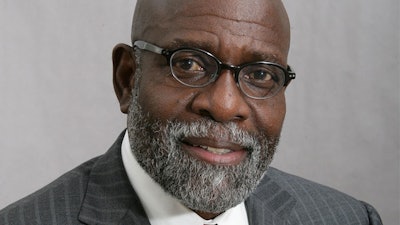Given the ubiquitous attack on diversity, equity, and inclusion (DEI) led by current and aspiring politicians, including former President Donald J. Trump and Governors Greg Abbott of Texas and Ron DeSantis of Florida, a first-time American visitor might erroneously conclude that the country has been attacked by a cultural virus created by artificial intelligence designed to infect the purity of American democracy. Even those running for city council, school boards, and state and congressional seats are invoking DEI and critical race theory (CRT) as dangerous, divisive, and destructive to democracy. The attacks are relentless, as is the coverage by traditional media, social media, and podcasters.
 Dr. Charlie Nelms
Dr. Charlie Nelms
History, not surprisingly, is also in the crosshairs. We have witnessed alarming attacks and the prohibiting of the College Board Advanced Placement African American Studies course in selected states. School libraries and their dedicated librarians have been targeted, as have public libraries that have helped ensure literacy and access to books for all. Public libraries have been a mainstay of democracy since Benjamin Franklin, and the American public education system was once the envy of the world. Now, they are both contested spaces in the increasingly vitriolic culture wars.
The forced resignation of leading university presidents, such as Harvard’s Dr. Claudine Gay amid charges of plagiarism, by antagonistic donors with deep pockets and their own political agendas, is an ominous sign. This is all set against the context of the U.S. Supreme Court’s decision to overturn the use of affirmative action in college admissions at Harvard and the University of North Carolina and its decision to severely curtail female reproductive freedom by reversing Roe v Wade. Seemingly feeling empowered, the Alabama Supreme Court ruled that frozen embryos are children, thereby leading to a pause in IVF treatments in clinics around the country.
There are numerous other causes for concern as the pace of restricting the rights of some while championing and demanding the rights of others accelerates: the depth, frequency, and coordination of the attacks on DEI, the willful lies that perpetrators peddle to support their views; the amount of media time and attention provided to those whose sole purpose is to disrupt and detonate pathways to opportunity for Black, Brown, Indigenous, and other historically disenfranchised peoples; the attack on democracy reflected in part by MAGA Republicans and the Jan. 6 insurrection; and the unethical and secretive behavior of selected Supreme Court of the United States (SCOTUS) members.
What I find most worrisome is the silence of a large swath of the American populace, especially historically disenfranchised people who benefited exponentially from the gains ushered in by the civil rights movement. It seems that we have lost our way, our voices, and our courage to stand up, to speak out, and to have our say. Many have cited exhaustion, and it is true that rest itself can be a form of resistance. It is important to acknowledge that social change is a marathon, not a sprint.
For a moment, it seemed that the protests associated with the tragic deaths of Trayvon Martin, Eric Garner, Freddie Gray, Michael Brown, Sandra Bland, George Floyd, and too many others would culminate in the resurgence of a sustained movement to ensure the rights of Blacks and other marginalized peoples to safety, to life, liberty, and the pursuit of happiness. Just as it appeared that the Black Lives Matter movement was gaining momentum, things went quiet. The backlash began. If we do not recognize that none of us are truly safe, we all risk a future filled with even greater peril.





















